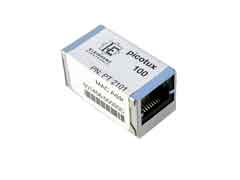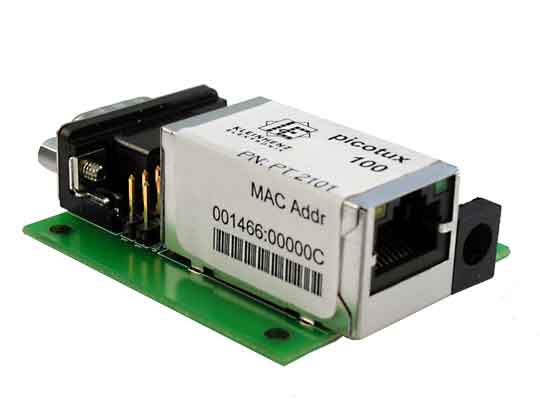picotux is the smallest Linux computer in the world
While the whole month of Raspberry Pi is in full swing, it's time to talk about the smallest Linux computer. Meet - picotux 100 , the brainchild of a German genius.

Release date: 05/18/2005
Price: 99 Euro
A pumped model is also available - picotux 112:

It is based on the same picotux 100, but it is located on a 53x48mm board and is additionally soldered:
An attentive reader could already conclude that on picotux 100 you have to solder some things yourself. But that’s not all, he himself will also have to fill in the OS image, since he will receive everything necessary for this.
Well, for those who are too lazy to mess around, for only 239 Euros (facepalm.jpg) you can get a Starterkit. Which includes: picotux 100, compact, cords, power supply.
Conclusions: of course you can scold picotux 100, remember about the Rapsberry Pi, and conclude - "not needed." But do not forget that the Raspberry Pi belongs to the class of mini computers, while the picotux 100 is micro. Perhaps somewhere there is a situation where you need to read telemetry over the network, while there is no place to place a computer at all. Then picotux 100 would be the best option. Therefore, we wish him good luck.
PS Apparently, the prices on the site changed for the last time in the same 2005. It is hoped that after the release of the Raspberry Pi, the guys will correct them in the near future.

General characteristics
- Dimensions: 36x19x19 mm
- Weight: 18g
- Operating Temperature: -40 ° C to 85 ° C
Specifications
- Processor: 32-bit ARM 7 Netsilicon NS7520, 55 MHz
- RAM: 8 MB SDRAM
- Flash memory: 2 MB (720 KB occupied by the OS), can be expanded by 4
- Network: 10/100 Mbit, HD and FD, auto sensing
- Com-port: there are contacts, speed up to 230.400 bps
- Power Supply: 3.3 V, 250 mA
- OS: uClinux 2.4.27 (Big Endian native)
- Shell: Busybox 1.0
- Applications: Webserver, Telnet
- Supported FS: CRAMFS, JFFS2, NFS
- Development with: GCC + binutils + uClibc
Release date: 05/18/2005
Price: 99 Euro
A pumped model is also available - picotux 112:

It is based on the same picotux 100, but it is located on a 53x48mm board and is additionally soldered:
- Com port
- Power connector
An attentive reader could already conclude that on picotux 100 you have to solder some things yourself. But that’s not all, he himself will also have to fill in the OS image, since he will receive everything necessary for this.
Well, for those who are too lazy to mess around, for only 239 Euros (facepalm.jpg) you can get a Starterkit. Which includes: picotux 100, compact, cords, power supply.
Conclusions: of course you can scold picotux 100, remember about the Rapsberry Pi, and conclude - "not needed." But do not forget that the Raspberry Pi belongs to the class of mini computers, while the picotux 100 is micro. Perhaps somewhere there is a situation where you need to read telemetry over the network, while there is no place to place a computer at all. Then picotux 100 would be the best option. Therefore, we wish him good luck.
PS Apparently, the prices on the site changed for the last time in the same 2005. It is hoped that after the release of the Raspberry Pi, the guys will correct them in the near future.
